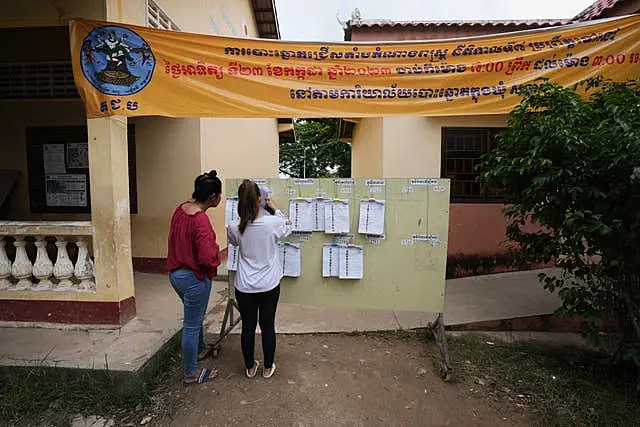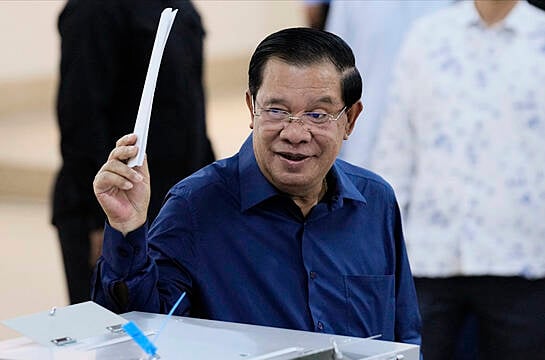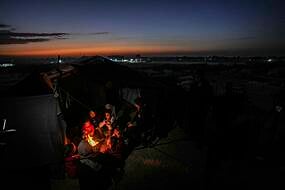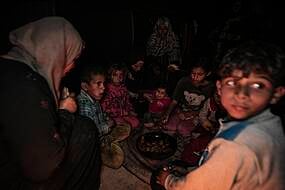Long-serving Cambodian prime minister Hun Sen cast his ballot 10 minutes after polls opened in an election in which his party is all but assured a landslide victory thanks to the effective suppression and intimidation of any real opposition that critics say has made a farce of democracy in the Southeast Asian nation.
The European Union, United States and other Western countries refused to send observers, saying the election lacked the conditions to be considered free and fair.
That left only international officials from Russia, China and Guinea-Bissau on hand to watch as Hun Sun voted at a polling station in his home district outside of the capital, Phnom Penh.
He held his ballot high for all to see, before depositing it into the silver metal box and leaving the station, pausing to take selfies and shake hands with supporters outside.
The longest-serving leader in Asia, Hun Sen has steadily consolidated power with his strong-arm tactics over the last 38 years.
But, at the age of 70, he has suggested he will hand off the premiership during the upcoming five-year term to his oldest son, Hun Manet, perhaps as early as the first month after the elections.
Hun Manet, 45, has a bachelor’s degree from the US Military Academy at West Point as well as a master’s from NYU and a Ph.D. from Bristol University in Britain.
He is currently chief of Cambodia’s army.
Despite his Western education, however, observers do not expect any immediate shifts in policy from that of his father, who has steadily drawn Cambodia closer to China in recent years.
“I don’t think anyone expects Hun Sen to sort of disappear once Hun Manet is prime minister,” said Astrid Noren-Nilsson, a Cambodia expert at Sweden’s Lund University.
“I think they will probably be working closely together and I don’t think that there is a big difference in their political outlook, including foreign policy.”

Hun Manet is just part of what is expected to be a broader generational change, with the ruling Cambodian People’s Party planning to install younger leaders into most ministerial positions.
“That’s going to be the big change of guard, that’s what I’m watching,” Ms Noren-Nilsson said.
“It’s all about the transition, it’s all about who’s going to come in and in what positions they find themselves.”
At the station where Hun Sen cast his ballot, voter Nan Sy, a former politician himself with a smaller royalist party, said the main issue for him was stability.
“Without stability we cannot talk about education, we cannot talk about development,” the 59-year-old said without saying who he voted for.
Hun Sen had been a middle-ranking commander in the radical communist Khmer Rouge responsible for genocide in the 1970s before defecting to Vietnam.
When Vietnam ousted the Khmer Rouge from power in 1979, he quickly became a senior member of the new Cambodian government installed by Hanoi.
A wily and sometimes ruthless politician, Hun Sen has maintained power as an autocrat in a nominally democratic framework.
His party’s stranglehold on power faltered in 2013 elections, in which the opposition Cambodian National Rescue Party won 44% of the popular vote to CPP’s 48%.
Hun Sen responded to the wake-up call by going after leaders of the opposition, primarily through sympathetic courts, which eventually dissolved the party after local elections in 2017 when it again fared well.
Ahead of Sunday’s election, the Candlelight Party, the unofficial successor to the CNRP and only other contender capable of mounting a credible challenge, was barred on a technicality from contesting the polls by the National Election Committee.
While virtually assuring another landslide victory for Hun Sen and his party, the methods have prompted widespread criticism from rights groups.







